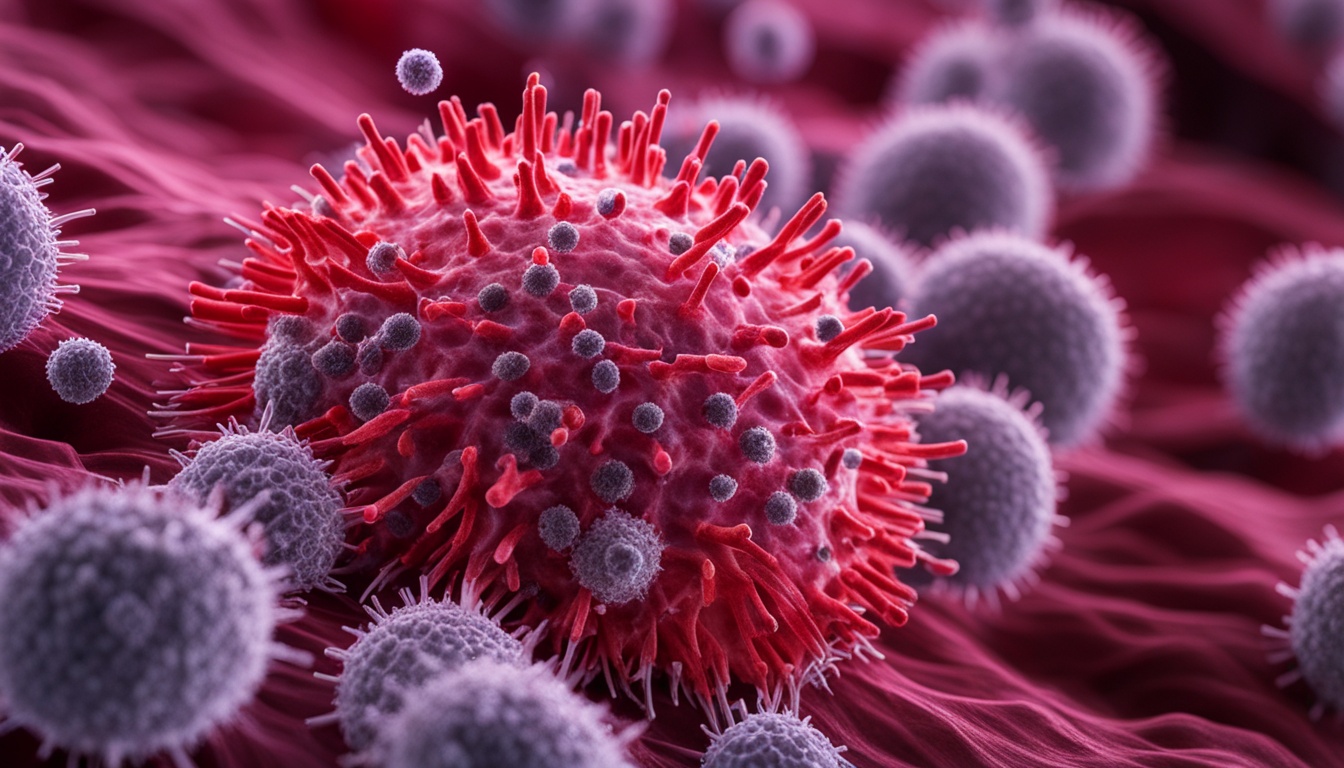RSV, or Respiratory Syncytial Virus, is a common respiratory virus. It mainly impacts infants and young children. It is a top cause of bronchiolitis, pneumonia, and respiratory failure around the world. RSV infections happen more during the winter in places with colder weather.
People infected with RSV may show symptoms like cough, runny nose, and fever. They might also have trouble breathing and make a wheezing sound. Babies less than one year old are at high risk of severe RSV. This is especially true if they were born early or have health issues.
Doctors usually diagnose RSV based on signs and symptoms. Lab tests can also confirm if the virus is present. Right now, treatment mainly helps with the symptoms, like giving fluids and oxygen. But for some, staying in the hospital might be needed. There isn’t a specific antiviral drug for RSV yet. Yet, scientists continue to explore treatment options, like stem cell therapy.
Stopping RSV’s spread is key. This means washing hands often, staying away from sick people, and getting a vaccine if there’s one. RSV can affect the lungs long-term, possibly causing lung problems or asthma in the future.
Healthcare teams follow set rules for dealing with RSV. These rules are updated regularly to give the best care based on new research.
Key Takeaways:
- RSV is a common respiratory virus that mainly affects infants and young children.
- It causes issues like bronchiolitis and pneumonia and can lead to respiratory failure.
- Infections happen more in the winter in colder places.
- Babies under one are at risk of severe illness from RSV.
- Doctors diagnose RSV mostly by checking for its symptoms, but they can do lab tests too.
Epidemiology and Burden of RSV Infection
RSV is a major global health issue that affects both kids and grown-ups. It’s a leading cause of respiratory problems in young children, including bronchiolitis and pneumonia. This introduces a high health burden, especially in developing nations with limited medical access.
About one-half to two-thirds of infants worldwide will catch RSV in their first year. This shows how common the virus is. In places with less access to healthcare, the impact of severe RSV is even greater.
It affects not just the young but also the elderly and those with health issues. This highlights RSV’s global reach, underlining the need for wide-ranging prevention and treatments.
RSV is linked to a significant number of deaths in children and the elderly. These facts stress the need for quick action in studying and tackling this virus.
Looking into RSV’s impact helps experts understand how it spreads and its effects. This understanding is key to create better preventive measures, improve diagnostics, and find new treatments.
RSV Burden in Children
RSV plays a big role in respiratory illnesses for children. It’s a major threat to infants, often leading to serious infections. Such infections can require hospital stays and critical care.
RSV Burden in Adults
RSV isn’t just a child’s issue; it also affects grown-ups, specially the elderly and those with health problems. For them, it can spark severe lung issues and raise the risk of pneumonia. As the population ages, this concern continues to grow.
Addressing the Global Burden
The fight against RSV demands a broad strategy. This involves basic steps like washing hands, limiting close contact with sick people, and creating vaccines. Also, ongoing research and cooperation among health experts, policymakers, and the public are crucial.
Diagnosis and Management of RSV Infection
Diagnosing RSV infection focuses on its symptoms. But, tests like rapid antigen ones or PCR can confirm it. This helps doctors give the right treatment quickly and accurately.
RSV infection is managed with supportive care. This means keeping the patient hydrated, lowering their fever, and giving oxygen if needed. There’s no specific medicine for RSV yet, but antiviral therapy studies offer hope for the future.
To lower RSV’s impact, prevention is key. Basic steps like washing hands often, staying away from sick people, and getting vaccines help cut the infection’s spread.
Doctors use detailed guidelines for diagnosing and treating RSV. These rules are updated with the newest scientific findings. This ensures those with RSV get the best possible care.
In bad cases, hospital stay might be needed, especially for babies or those with health issues. Research is always looking for better ways to treat and prevent RSV, aiming to lessen its global impact.

